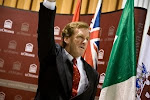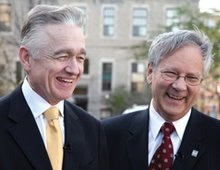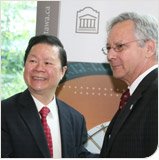Due process on ice at the University of Ottawa
PublishedSunday, Jul. 13 2014, 6:00 PM EDTAllegations that some members of the University of Ottawa’s men’s hockey team committed sexual assault in Thunder Bay earlier this year are deeply disturbing. If they prove to be true, the young men involved are guilty of a serious criminal offence, punishable by up to 10 years in prison. But the university’s recent decision to suspend the entire hockey program for a full season is hasty and unjust to those players whose only fault is one of circumstance: They happen to play on the same team as the three alleged offenders. Twenty-one players are innocent of any crime – even an alleged one – yet they are being treated as though they are guilty by association. It’s a kind of collective punishment.
It’s a surprising verdict, coming from Allan Rock, the University of Ottawa’s president, who once served as justice minister. He justified the sweeping sanctions after an internal review – details kept confidential – showed some team members’ behaviour during the tournament in Thunder Bay “did not meet the university’s expectations of our student athletes” and “was not in keeping with the university’s values.” If that sounds vague, it is no more so than statements from the Thunder Bay Police concerning the alleged Feb. 1 incident. Their investigation is complete but they have not yet decided whether any charges will be laid. Perhaps the university’s investigators uncovered something the police missed, but unless Mr. Rock makes their findings public, it’s impossible to understand why he chose such a harsh course of action. Would it have made more sense to wait for the police to lay charges, and for those charges to be proven (or not) in court? It’s called due process, and one would think that Mr. Rock would get that.
The university’s suspension of the hockey program doesn’t just mean a couple of dozen players don’t get to play their sport. A group of people who had nothing to do with the alleged incident – some of whom weren’t even in Thunder Bay – have had their reputations tarnished, job offers revoked, and have been ostracized by peers. Mr. Rock should have waited; if any players are ultimately found guilty, the university can punish them (after the justice system does). But based on the evidence that’s publicly known, at least 21 other players have done nothing wrong. They deserve something else from Mr. Rock: the presumption of innocence.




